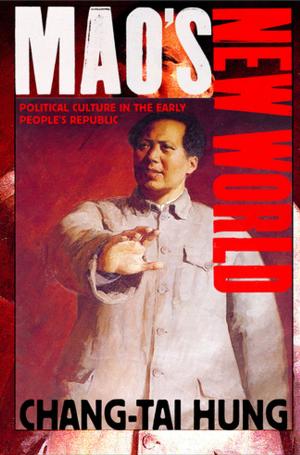A Moral Technology
Electrification as Political Ritual in New Delhi
Nonfiction, History, Asian, India, Social & Cultural Studies, Social Science, Anthropology| Author: | Leo Coleman | ISBN: | 9781501707919 |
| Publisher: | Cornell University Press | Publication: | May 9, 2017 |
| Imprint: | Cornell University Press | Language: | English |
| Author: | Leo Coleman |
| ISBN: | 9781501707919 |
| Publisher: | Cornell University Press |
| Publication: | May 9, 2017 |
| Imprint: | Cornell University Press |
| Language: | English |
In India over the past century, electrification has meant many things: it has been a colonial gift of modern technology, a tool of national integration and political communication, and a means of gauging the country's participation in globalization. Electric lights have marked out places of power, and massive infrastructures have been installed in hopes of realizing political promises. In A Moral Technology, the grids and wires of an urban public utility are revealed to be not only material goods but also objects of intense moral concern. Leo Coleman offers a distinctive anthropological approach to electrification in New Delhi as more than just an economic or industrial process, or a "gridding" of social and political relations. It may be understood instead as a ritual action that has formed modern urban communities and people’s sense of citizenship, and structured debates over state power and political legitimacy.Coleman explores three historical and ethnographic case studies from the founding of New Delhi as an imperial capital city, to its reshaping as a national capital for post-independence India, up to its recent emergence as a contemporary global city. These case studies closely describe technological politics, rituals, and legal reforms at key moments of political change in India, and together they support Coleman’s argument that ritual performances, moral judgments, and technological installations combine to shape modern state power, civic life, and political community.
In India over the past century, electrification has meant many things: it has been a colonial gift of modern technology, a tool of national integration and political communication, and a means of gauging the country's participation in globalization. Electric lights have marked out places of power, and massive infrastructures have been installed in hopes of realizing political promises. In A Moral Technology, the grids and wires of an urban public utility are revealed to be not only material goods but also objects of intense moral concern. Leo Coleman offers a distinctive anthropological approach to electrification in New Delhi as more than just an economic or industrial process, or a "gridding" of social and political relations. It may be understood instead as a ritual action that has formed modern urban communities and people’s sense of citizenship, and structured debates over state power and political legitimacy.Coleman explores three historical and ethnographic case studies from the founding of New Delhi as an imperial capital city, to its reshaping as a national capital for post-independence India, up to its recent emergence as a contemporary global city. These case studies closely describe technological politics, rituals, and legal reforms at key moments of political change in India, and together they support Coleman’s argument that ritual performances, moral judgments, and technological installations combine to shape modern state power, civic life, and political community.















